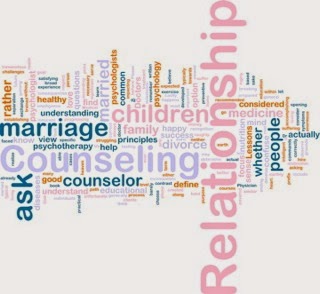We all have those friends who jump from relationship to relationship, and each time, they are “totally and completely in love.”
For those of us who have been single longer than two of their relationships combined, we can't help but wonder how someone can possibly be “in love” with all these people.
I mean, come on. It's not love. It's fear of being alone. Right?
Yes. And no. I mean we can't calculate love any more than we can election polls or Miley’s next erotic exorcism. It's just something you get a feeling about.
But what if your feeling is wrong? What if you're just so damn scared of being alone that anyone who comes close to making you feel safe and secure feels like your soulmate?
You know those relationships you got out of, and after a few months, you couldn't believe you ever said those three beautiful words to someone you wouldn't want to be seen with today? How could you love someone so grotesque? Someone so not your type? Someone so shallow?
Well, it's usually because it wasn't love. It was attachment.
I have no real insight in knowing if your love is real or if it's just insecurity masked in AXE body spray, but I can give you some general pointers. They’re the kind of pointers to show your friend because she's becoming way too attached to that douchebag you thought for sure would be a one-night stand.
Because you don't want to attend a wedding where the only thing the bride has to say about the groom is that “he's always there.” And if you're not sure about your own love motives, take a look at the list to decipher if what you're doing is worth all the time invested.
Love is passionate; attachment is apathetic
They say the closest feeling to love is hate, hence why after you break up with someone, all that beautiful, selfless love turns into raging, passionate, inexplicable hate.When you're just attached to someone, however, you never really get that rage. You get paranoia, anxiety and moments of irritation, but you don't let those anxious feelings confuse you for something as beautiful and important as real hate.
Love is selfless; attachment is self-centered
When you're in love, it's all about the other person. For the first time in your life, you want to put someone else's needs before your own.When it's just attachment, you just want someone to be there before you. You're not looking out for him or her — you're looking out for you.
The only reason you're buying this person new bedding from Bed Bath & Beyond is so you don't have to sleep alone anymore. Everything you do for your partner is a little bit about you.
Love is hard; attachment is only difficult when you're apart
Real love is never easy. You'd think it would be because it's so pure and beautiful, but anything that intense and life-changing takes work. You must foster it and keep it nourished.With attachment, there's nothing to grow and feed; it's just about how many times you can see each other in a week.
You need this person the same way you need a fix. It’s not growing, blooming or changing into another dimension. Like any drug, the high is not long-term, and you will come down.
Love is freeing; attachment is possessive
When you're in love, you don't need to see the person to feel safe. You don't need to be with this person to understand how he or she feels. You never wonder about your love's affection and never get jealous.When it's just attachment, you never have a true hold on your partner's feelings because the only time you feel safe is when you're with him or her. When you’re apart, you can’t help but wonder what, or who, he or she is doing.
If they’re also just attached, doesn’t that mean they need someone to attach to?
Love is empowering; attachment is all about power
There's nothing like real love to make you feel like you can do anything. It gives you a new sense of freedom, a rejuvenated energy. You're alive and ready to take on the world.When it's just an attachment, it becomes a power struggle. You want to make sure you're the one in the relationship who doesn't get left. You're the one calling the shots, and you're the one with the key to the handcuffs.
Love is timeless; attachment is timed
When you're in love — and I mean really in love — that's it. Whether it works out or not, this person will always be the love of your life.Attachment doesn't work like that. Attachment is always on a deadline, always on standby. Attachment isn't real — it's like a limbo for real love.
One of these days, one of you is going to find that real love and all that attachment you placed on each other will fall off as quickly as you put it on.
Real love doesn’t fall off; it stays with you forever.








